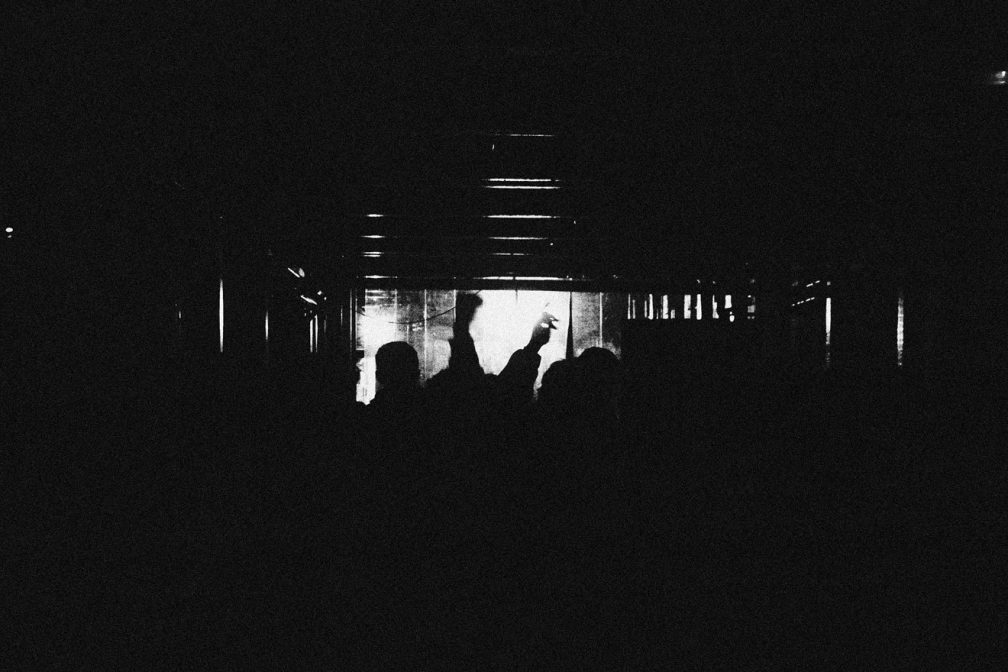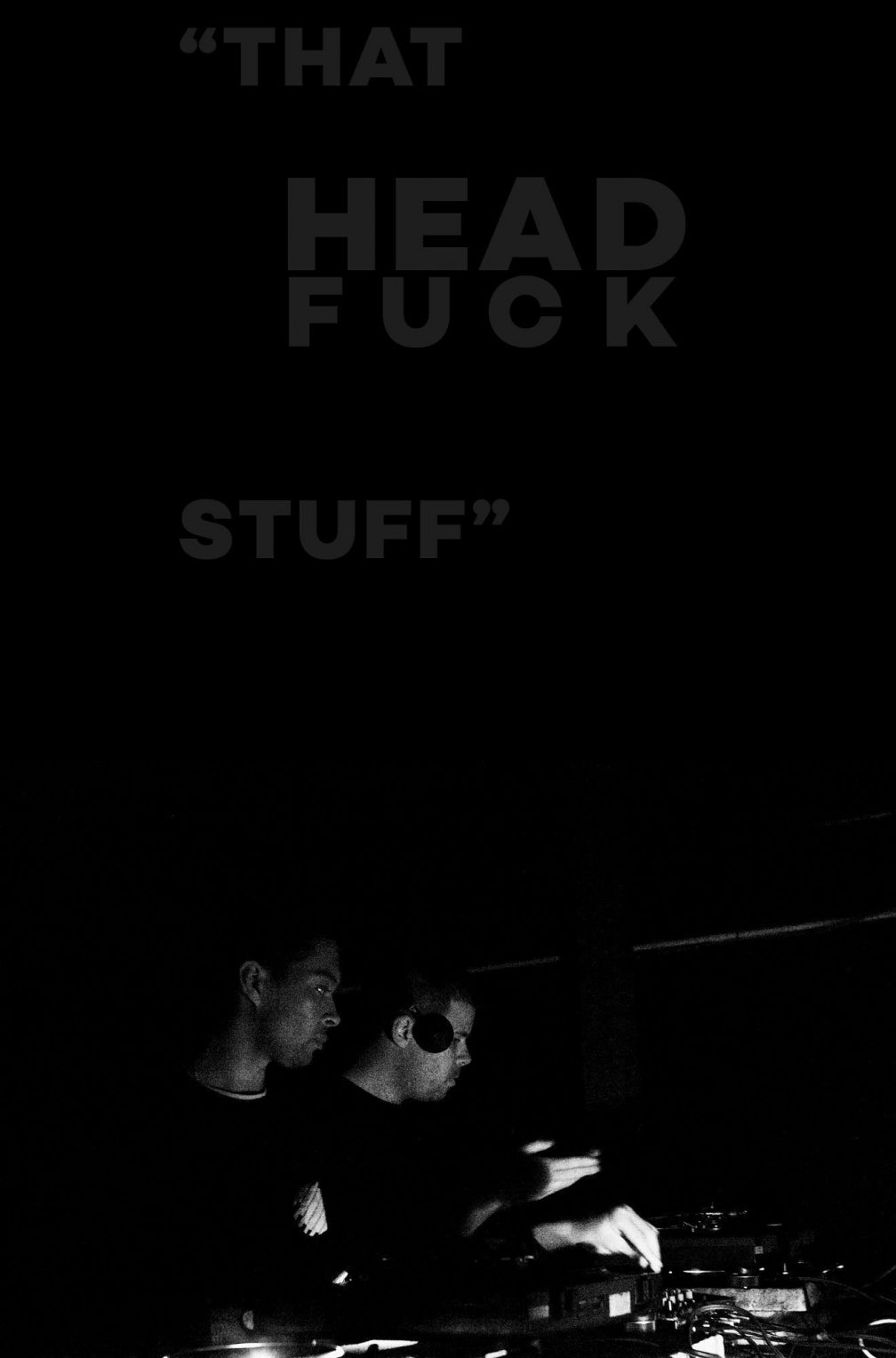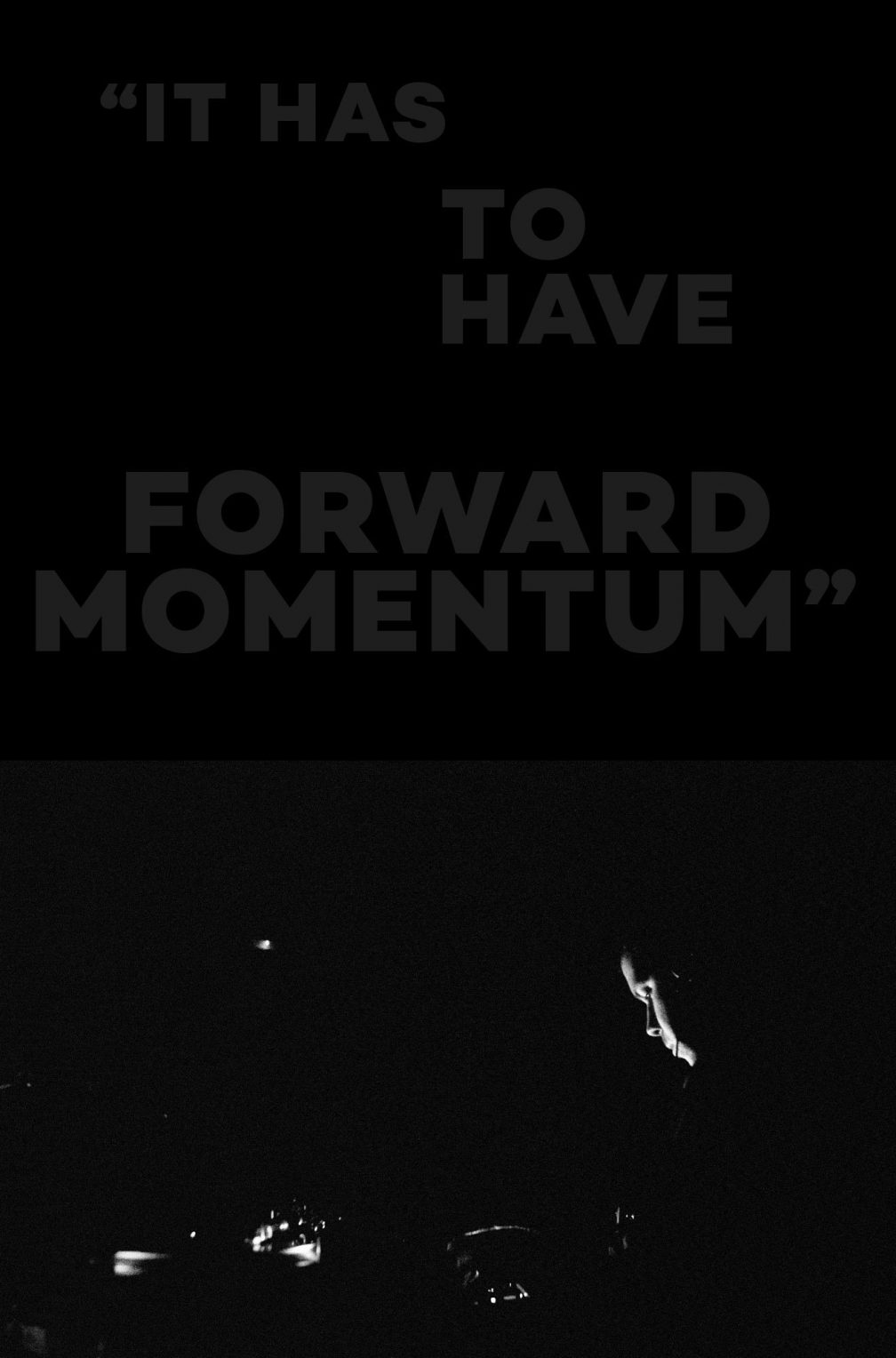 Scene reports
Scene reports
Timedance: A new UK techno sound
The Bristol record label and party is at the heart of a growing movement
“There's a lot of very backwards-looking dance music which is just fucking boring,” says Batu, who runs the Timedance label and party out of Bristol. His point of view makes sense given that he’s involved in creating and incubating a new, distinctly UK style of techno that has taken root in the South West city as well as other parts of the country. And the only way it faces is forward.
Alongside fellow Bristol artists Hodge, Facta, Lurka, Ploy, Bruce and Asusu, London-based Beneath and Manchester’s Alex Coulton, the 22 year old is a key figure in an inventive crop of young producers making a low-end, broken and forceful style of underground dance music that’s tailor made for the soundsystems of warehouses and basements.
Like many of 2016’s bubbling sub genres and micro niches, it hasn’t got an official name but it does have origins in Bristol and the creativity of two scene godfathers who kept the bass-heavy sound of the city moving in the wake of dubstep. In 2010, Pinch released ‘Croydon House’, a sleek, dusky meld of dubstep and techno, and in 2011, Peverelist and Kowton put out the first Livity Sound 12”, minting the start of a project that also marries the two genres, with focus on the seismic bass weight of the former with the calculated dancefloor-focused rhythms of the latter. They then started labels to foster new talent specialising in this hybrid, Pinch with Cold Recordings in 2013 and Pev with Dnuos Ytivil in 2012. The imprints have acted as a launchpad for a steady building UK movement that Batu and his peers, who have all started labels and club nights of their own, are at the forefront of.
For him, the open-minded mentality of Bristol and its scene elders have enabled unconventional styles to flourish. And making things interesting is deeply etched into the nucleus of everything that Batu puts his name to. His own slippery productions are so cutting-edge that they could be applied as tools in a jeweller’s workshop and, since 2013, he’s been crafting a strange, disorientating and altogether unique discography.
“Dance music's just become, through a large amount of it, a very unimaginative thing really," he says. "There's enough body of work that people are happy to look back and reference things that have happened explicitly without trying to put any new take on it. A lot of labels are the same. It's the same people happily putting stuff out because they think it's good. But why is it good? Where is this going? It needs to have forward momentum.” He interrogates these questions through the output of his Timedance label, producing and curating club music that’s informed by sounds of the past, but warps them in new-fangled and compelling directions, forming the next instalment of the Bristol, and indeed the UK, continuum. There’s also his party of the same name that acts as a place for this music to be heard out, an IRL hub for artists and dancers alike.
This all connects to a network of UK label-cum-parties like Beneath’s No Symbols, Facta’s Wisdom Teeth, Project 13 (which counts Acre and Divided among its number), Hotline Recordings and Keysound (co-founder Martin Clark calls the sound ‘rollage’ and collected early examples on 2013 compilation ‘This Is How We Roll’, joining Pinch and Pev as an important instigator, albeit in London).

It was Beneath who introduced Batu to Pinch during a night at fabric, and the Tectonic and Cold boss was impressed by the tracks he was sent thereafter. “The production was quite rough but I could hear the moods Omar was aiming for and I clicked with his vibe,” Pinch says. “I'm proud that Cold Recordings hosts his debut release as I felt from early on that he is a talent to watch out for. He continues to progress.” Peverelist was similarly taken with the Batu material that landed in his inbox: “He's got great ideas, he's confident in what he's doing and he fits in with what I'm trying to do with [Dnous Ytivil].”
But after making his first releases on Cold and Dnous Ytivil, Batu found a less receptive response beyond the climes of the South West as label rejections piled up through a barren 2014. Unperturbed and believing in his own ability, he put the rebuffs down to labels wanting to play it safe. Deciding that there was a space open for an injection of new and fresh ideas, Timedance was born.
In its fledgling lifespan of three releases, the label is already evolving an identity of tracks that are futuristic and disorientating, but still rooted in the club and designed to make you move. “I don't think I'm resetting the rulebook, I'm still working within a very limited set of things,” Batu says. Cues that he works into his production range from Autechre’s ethos of blending dancefloor functionality with emotion to the visionary abstraction of d’n’b duo Source Direct, taking influence moreso from the pioneering mindsets than the resulting music.
“Batu tracks feel a bit more off kilter than what other people are putting out at the moment, you have to wrap your head around them - in a good way,” says Beneath. “I have fond memories of playing ‘Domino Theory’ from the first 12” at Berghain and Plastic People and being totally lost in that mad breakdown,” he recalls, “that tune is exactly what I want to play in a club. It’s measured but it’s got this forward momentum that feels unstoppable until the mad breakdown comes in.”
Hodge applies Timedance records to similar effect in his sets, saying he draws for them to “confuse people or wake people up on the dance floor,” adding “that headfuck stuff, where you can't predict where things are going is one of the most exciting things to experience in a club.”
Facta agrees that the imprint is treading new ground in a very assured fashion. “Most of the releases so far have been reasonably out there, but they never feel forced or clumsy - they tread the line between experimentation and club-efficacy very neatly. The L.Sae record is a perfect example - it's weird, loping and distorted, but with enough colour, character and groove to ensure that it’s also very easy to fall in love with,” he says.
Just as Timedance, the label, was born from the dearth of outlets releasing records Batu wanted to play, its club night offshoot was launched due to the lack of places to play them. “There were techno parties or dubstep parties, but nothing really representing the middle-ground, hybrid sound in Bristol” he says. The first rave took place in a “really small little sweatbox” called The Cavern in the city centre. Local soundsystem Parish was enlisted to bring volume to the space, and Beneath came down to DJ for free. “It was very, very DIY, just completely asking favours off mates,” Batu recalls.
Shortly after the first Timedance, The Cavern shut down. “I didn't have any intention of being a promoter or running nights,” Batu reveals, but spurred on by the success of its debut, and realising that he didn’t have to accept clubs the way they were and could be the catalyst for change, he decided to make it a regular occurrence. The basic blueprint set out was simple: music played loudly by idiosyncratic DJs in a dark room, creating an atmosphere that everyone can lose themselves in.

A former-prison-cell-turned-art-space called The Island not far down the road was chosen, fulfilling the requirements of minimal lighting and acoustics primed to lock in sound at bone-rattling levels. Beyond his desire for darkness and volume, Batu strives for inclusivity and a communal atmosphere achieved through the music. Tickets are only sold on the door, ensuring attendees don’t have to be well-versed in dance music or act months prior to secure entry. He doesn’t like clubbing as a big spectacle with advanced tickets and focus on who’s playing at what time. The aim is to open minds and provide a space for anyone to come and let go in a way they can’t otherwise do.
The selectors who play reflect Timedance’s commitment to presenting music in stimulating ways, with acts booked primarily for their unique styles. Line-ups have featured solely techno-focused DJs such as Asusu and Nick Craddock, as well as DJs known for wide-ranging eclecticism like Bake. “That's something I find interesting: people who mix in a slightly different way or have slightly different roots in different things - when that comes across and you can tell,” he says.
In terms of needing a space to let go, Batu considers this to be a vital role of clubbing currently. “It's a tough time to be young in the UK man, it's really shit for a lot of people. Everyone's fucking skint, everyone's stressed,” he says with as much animation as his Sunday hangover allows. “Clubbing more than ever I think is important for people to have an outlet to just go and dance. A lot of promoters don't really care about that. They're putting on a party for lots of different reasons. Whether it's boosting their own egos or making money or they just like getting their friends to come to a party. I think a lot of people aren't really thinking about it in the right way which is why I'm, through my own tiny little way, trying to push what I think clubbing should be.”
A focus on atmosphere and inclusivity is immediately apparent walking into The Island for the seventh Timedance in April. There’s no militant search upon arrival. Instead, the lone bouncer at the entrance is happily chowing down on chicken wings and dishing out tips on Bristol’s finest takeaway establishments, with aggro seemingly the last thing on his mind.
Moving down into the depths of the dungeon, a barred metal cell door on the approach to the dancefloor evokes the building’s former employment as a jail, but in its new life there’s none of the segregation stereotypical of such an institution. The numbers inside are made up by an assorted mix of fresh-faced teens, local heads and University students escaping dissertation deadlines for a dance. Batu, Lurka and A Made Up Sound are on deck across the night, deftly moving through skittering percussive cuts and weird ambient sounds (Flying Lotus’ ‘Jurassic Notion/M Theory’) into propulsive club rollers (Aquastep’s ‘Oempa Loempa’) and out the other end with trippy techno mutations (DJ Harlow’s ‘I Am The D’). Every time the needle hits the groove on a new slab of wax there’s a ripple of approval through the crowd who are tangibly enthralled by the sounds pumping out the weighty Parish speakers.
Batu tells me how he and Dave [Huismans aka AMUS] spoke about being the “B2 crew”, referring to extensive digging through house and techno records to find interesting B-side tracks which are “a little bit more weird and slow” to play. Based on the slew of mind-bending music they spin, it’s time well spent.

A Made Up Sound hits with a curveball in the shape of an emphatic pop number with soaring, almost gaudy synths and a vocal line calling out “1 2 3 4” to close the night. It’s a world away from the dubstep-techno hybrids that he’s known for producing, and yet doesn’t jar, drawing a visceral response of delirious grins, euphoric whoops and uninhibited dancing. Not staples of your standard heads-to-the-floor techno clubnight, which Timedance surpasses with its wide-ranging approach and open atmosphere that the crowd thrives on.
Huismans outlines the important impact of Timedance, saying “[Bristol is] my favourite city in the UK and I used to DJ there quite a lot, but over the past few years it's seen some of the key venues for the more adventurous types of dance music closing or changing direction. Timedance brought back that grimey yet intimate small dark basement vibe that I love, with an open-minded crowd.”
On the night, a beaming Batu appears by the side of his headliner as AMUS closes out the party. In the moment he’s happily lost in the music as planned, but as the hangover of the night’s excess sets in the following afternoon during our interview, the toll of running both aspects of Timedance and holding down a job at an energy company three days a week briefly surfaces. “None of us are very successful, there’s barely anyone that wants to release our music” he remarks, referring to his Bristol peers, noting that despite the outside focus on the city that “you come here and everyone's skint and doesn't have any gigs.”
In the grand scheme of things, it’s still early days for the young cohort of producers pushing their creative new angle on club music, but they’re showing a confidence in their output that mirrors the assurance of trailblazers from the past and suggests the world will catch up soon. Hodge's Rinse FM residency is a must-listen, Facta signed his latest tracks to the Bloc label, Beneath has taken to throwing basement raves in Peckham, Lurka's started the Fringe White label and has a 12" coming on Timedance, Kowton just dropped his debut album and has a live show in the works, Pinch and Peverelist continue to unearth and promote new artists... Dive in at any time and you'll find the newest UK shit going.
“How can I make this work while still doing what I want to do?” Batu ponders towards the end of our interview, while considering how to successfully run Timedance in the face of time, energy and financial constraints. The question hangs in the air momentarily, before he asserts with conviction: “I'm not going to compromise it.”
Lurka's 'Beater' EP is released on May 27 via Timedance
Patrick Hinton is Mixmag's Digital Intern. Follow him on Twitter here


